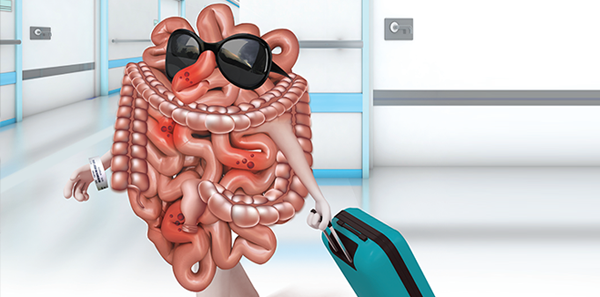
There is a bit of an axiom that circulates in medical school: “Half of what you’re learning is wrong, but we don’t yet know which half.” This has borne out observationally simply by examining the frequency of reversed medical practices in the major medical journals.1 There is also an entire school of academic inquiry into the likelihood of research arriving at erroneous conclusions, and it can be statistically demonstrated that most published findings are false.2
Explore This Issue
ACEP Now: Vol 35 – No 02 – February 2016The treatment of diverticulitis seems poised to be the next domino to fall in reversal of dogmatic medical practice. Some patients with diverticulitis progress to perforation, abscess, sepsis, and death, and the advent of antibiotic therapy substantially reduced morbidity and mortality associated with diverticulitis. The classic teaching, then, has required hospitalization and intravenous antibiotic therapy while monitoring for deterioration. However, with better understanding of the disease process, it was proposed that diverticulitis is primarily an inflammatory rather than an infectious state, and only those with a complicated disease course may benefit from antibiotic therapy.3
Given the increasing challenges of antimicrobial resistance paired with the rise of disabling Clostridium difficile infection, such a hypothesis did not go unnoticed. The first bits of evidence testing the disutility of antibiotics in acute, uncomplicated diverticulitis have been trickling out over the past three years. The first, the AVOD randomized trial, was an open, multicenter study in Sweden published in 2012.4 In this study, 669 patients with a CT-confirmed diagnosis of acute, uncomplicated diverticulitis were hospitalized and randomized to either intravenous fluids only or intravenous fluids and intravenous antibiotics in combination with fluids. Patients were evaluated daily while hospitalized, then followed for up to six months following enrollment.
The quick results summary: no difference. Patients in each group had nearly identical hospital courses, with similar rates of resolution of pain and fever, and median in-hospital length of stay of fewer than three days. The number of patients progressing to complicated disease was in the single digits in both cohorts. Ten patients randomized to no antibiotics were started on antibiotics due to suspicion of clinical worsening, while three patients on antibiotics terminated therapy due to allergic side effects. Recurrent episodes of diverticulitis during follow-up were likewise identical at six months.
Pages: 1 2 3 | Single Page

 ACEP Now features one article each issue related to an ACEP eCME CME activity.
ACEP Now features one article each issue related to an ACEP eCME CME activity.





No Responses to “Antibiotics, Hospital Admission May Not Help Uncomplicated Diverticulitis”